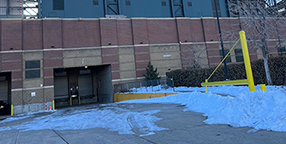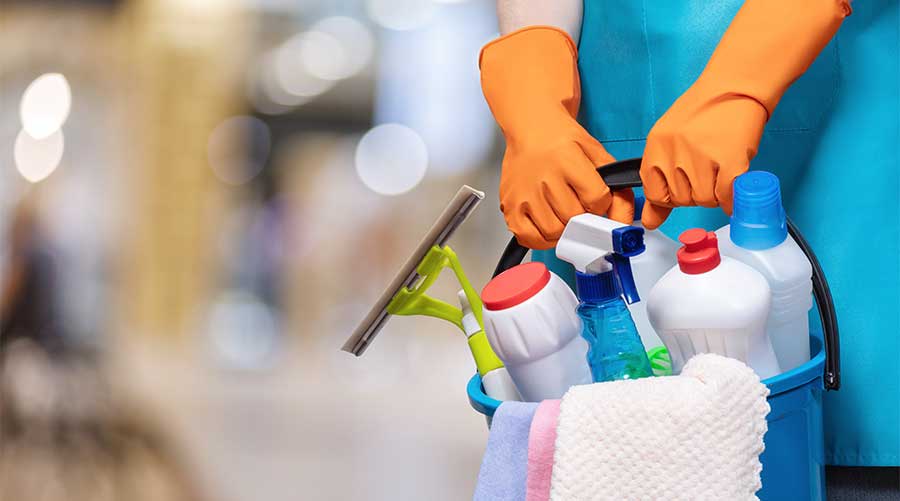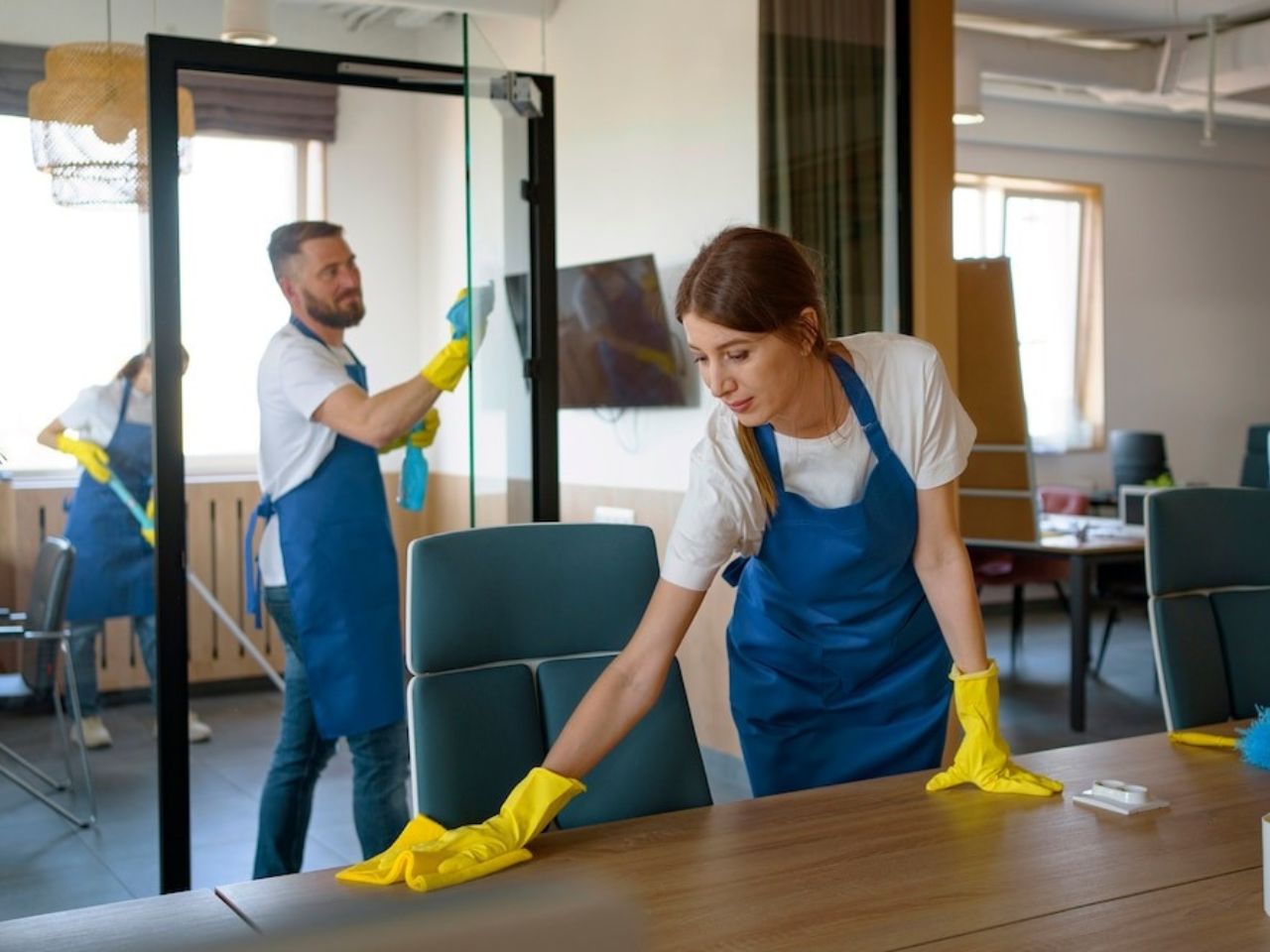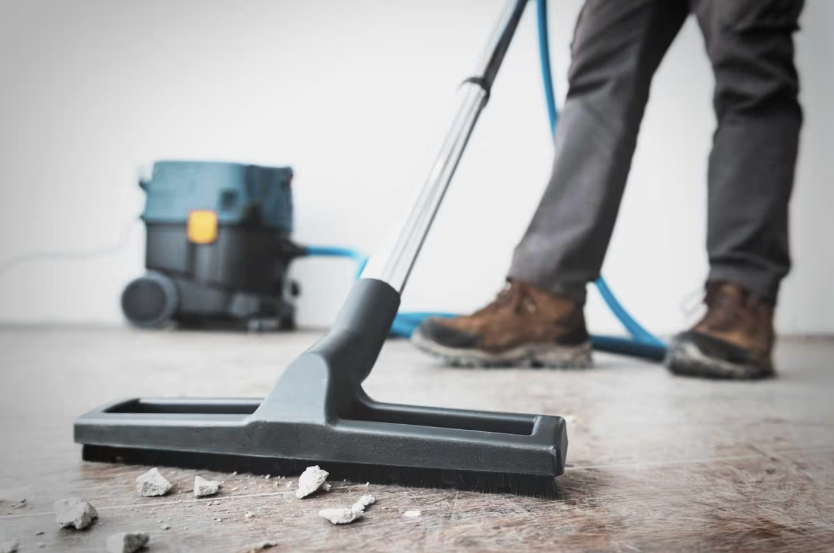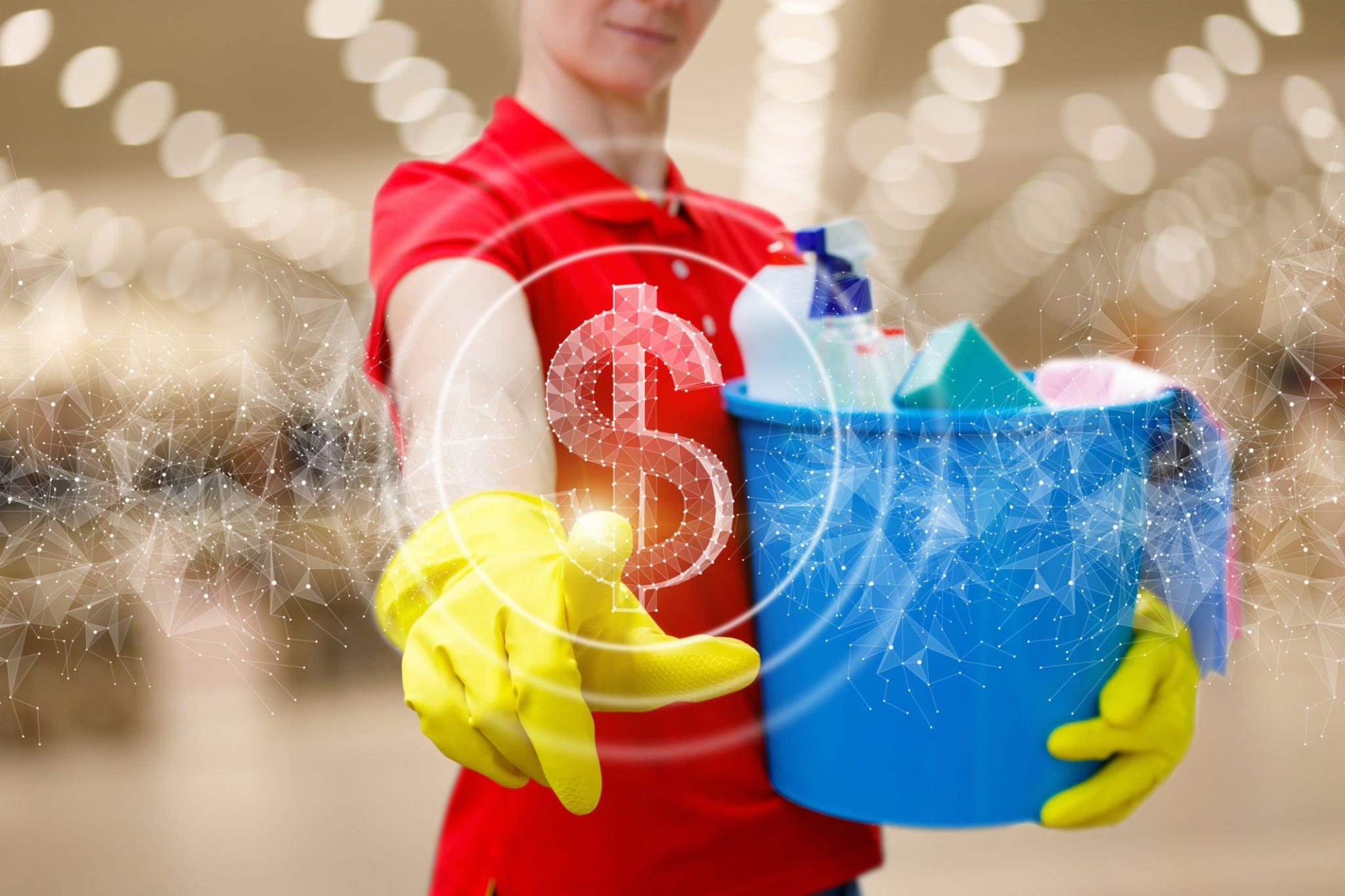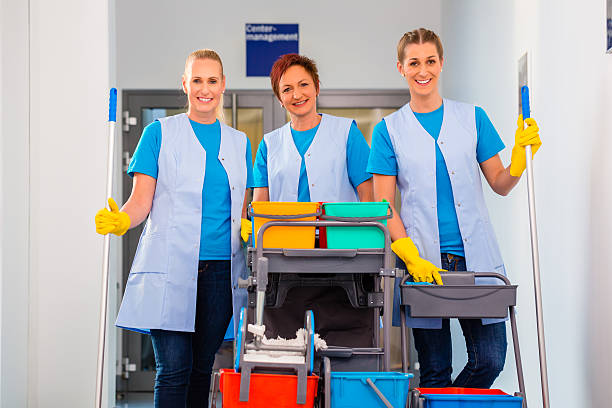Consider the number of different materials that make up your building: metal, glass, plastic, laminate, and more. They must all be cleaned with other products using different methods. During regular commercial cleanliness, a professional janitor would begin by cleaning all of the glass, followed by all of the stainless steel, etc. For the sake of efficiency and better quality cleaning, a cleaning schedule must be designed and followed for your facility.
Whether you manage a school, church, warehouse, or other kinds of property, a detailed and customized cleaning schedule is essential for keeping your business clean, sanitary, and appealing to your customers or anyone entering the facility. As we said above, a cleaning schedule ensures that your entire facility – every surface – is cleaned adequately and appropriately. Property managers should resist the urge to clean everything, all at once. This only results in a rushed, low-quality cleaning that has the potential to damage more sensitive equipment or technology.
Today we will explain why forming a detailed cleaning schedule can help keep your business cleaner while optimizing the amount of time it takes to complete a scheduled cleaning. Cleaning schedules can benefit in-house cleaners and commercial deep cleaning companies.
1. Customized Cleanliness Schedule
At Legacy Cleaning Solutions we take the time to offer specialized cleaning services to the wide variety of clients we serve in Denver. A private school does not require the same cleanliness schedule as a warehouse, and vice versa. Depending on the type of facility, the industry, and the owner’s preferences, we devise a custom schedule to fit the needs of the client. For example, a professional school cleaning service would likely need to be performed in the evenings or on weekends when the building is not occupied. A majority of the work would likely focus on professional floor cleaning, sanitizing surfaces, and disinfecting other areas. Cleaning a school could also require specialized equipment such as green cleaning products, a shampooing machine, and more. Certain events such as a homecoming or sports games would require extra care before and after to ensure that a high standard of cleanliness is maintained. Other facilities such as warehouses might not need regular cleanings, and products used may not need to be green because warehouses don’t often have a lot of high-touch spots. Again, warehouses can be active at all times of day, so a specific schedule would be required to allow cleaning crews to come in and perform their work unimpeded by the operations at a facility.
2. Consistent Cleanliness
As we said above, you shouldn’t rush to clean everything all at once. In fact, certain places may not need regular cleanings. Sensitive equipment such as cameras or lighting may be damaged with frequent cleanings, so it’s important to know when and when NOT to clean. Other areas like floors, ceilings, and surfaces may be cleaned daily, but depending on the type of material, you may need to utilize different products and techniques to achieve a proper level of sanitation. A well-defined schedule of what needs to be cleaned and when ensures that everything is getting done in an orderly fashion. As a facility manager, you could check the schedule to ensure that certain work has been performed during the promised period. Knowing what work is being performed can help you adjust your standards and what’s expected from cleaning crews.
3. Simplify The Cleanliness Process
A professional cleaning schedule simplifies the process because the janitorial staff knows exactly what to do. Instead of guessing what was cleaned and what was not, your cleaning staff can refer to a checklist to quickly understand what needs to be done. By organizing and documenting work performed by professional cleaners, the process becomes more streamlined. If you’re unhappy with how something was cleaned or when it was cleaned, you as a business owner could work with the commercial cleaning company to improve the process. By assigning and organizing roles it becomes clear what is expected and eliminates a lot of confusion and frustration.
4. Cleanliness Structure Improves Safety
When a commercial cleanliness company knows what to clean when to clean, and how to clean – the quality of work and level of safety will improve. Documenting how to clean and where to clean, with what products and tools, means that cleaning crews will always be in the know and be better prepared for the work to be performed. By providing detailed documentation on how to perform cleaning, accidents such as the mixing of chemicals will be avoided. Cleaning sensitive technological equipment becomes much less of a worry when professional janitors know exactly how to clean specific items.
In general, a cleaning schedule should detail the cleaning tasks, the frequency of cleaning, what products to use, who will be performing the work, and how to document progress made during a cleaning. Even a simple cleaning schedule can greatly improve the look and feel of your business, whether that’s a church or a large warehouse. With regular, consistent cleaning, you also expand the lifetime of your equipment while boosting the impression made on your employees and your customers.
If you need assistance creating a custom cleanliness schedule, designed to fit the exact needs of your business and industry, please don’t hesitate to contact us today. We offer church cleaning services, school cleaning services, and office cleaning services in Denver.
